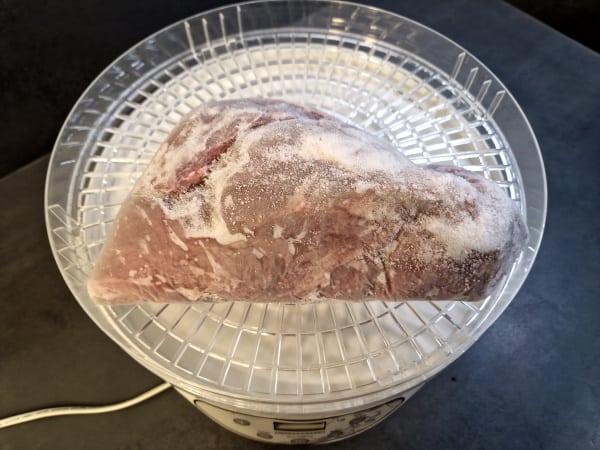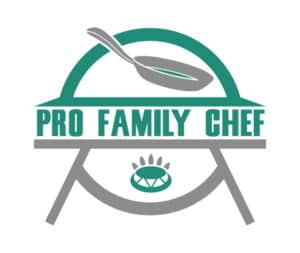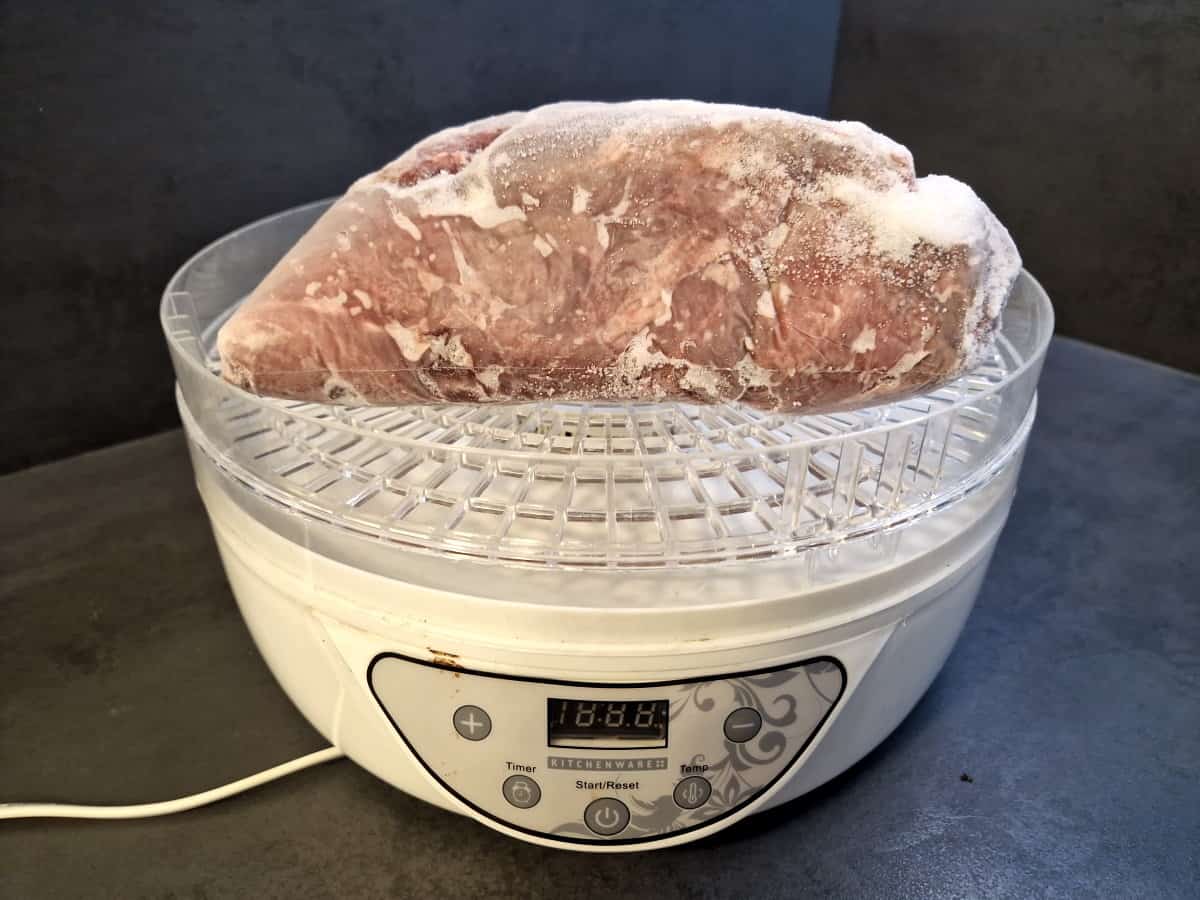Dehydrating food items such as meat, vegetables, and fruits is a technique that removes moisture from the food and lets you store it for a much more extended period. This method saves money because you waste less food and speed up the cooking time.
The question to ponder is whether you can dehydrate frozen meat or not.
Meat cannot be dehydrated while frozen. It should be cooked to the proper internal temperature before dehydrating. Cooked meat that has been frozen must be defrosted before it can be dehydrated. However, certain types of meat slice better when partially frozen, such as lean beef for jerky. But the meat must still be thawed before dehydrating.
Can you dehydrate frozen meat?
A food dehydrator removes moisture from food at a plodding pace over time. When meat is frozen, it will first defrost in the dehydrator before the actual dehydration process begins. The problem is that while the food is drying, it will be in the danger zone for too long.
The danger zone is a temperature range between 40 °F and 140 °F. When food is left in this temperature range for too long, as the case will be when dehydrating meat, microorganisms and enzymatic activity will activate inside the meat, causing it to spoil.
A dehydrator will remove moisture at a constant rate between 130 °F and 140 °F. As stated, this will put the meat directly in the danger zone. In addition, dehydrating meat takes between four and eight hours, depending on the amount of meat and the thickness of the slices.
It is not safe to dehydrate frozen meat. The meat should be prepared to the correct internal temperature before dehydration if it is raw. If the meat is cooked and frozen, it should be defrosted using the correct method before dehydrating.
The meat should be heated to 160 °F before dehydrating to help eliminate any bacteria.

Can you dehydrate partially frozen meat?
No. Partially frozen meat will defrost in the dehydrator before the meat starts to dehydrate. This could cause potential bacteria to start growing in the meat while it is thawing, which may be harmful when consumed.
How do you dehydrate frozen meat?
The first step is to prepare meat for the dehydration process. If the meat is frozen, it is best to thaw it before dehydrating it. The best method for defrosting meat is to place it in the refrigerator overnight.
If you are working with a larger cut of meat that you have to cut into pieces, you should only partially thaw. It’s much easier to cut partially frozen meat than fully thawed meat. After slicing the partially frozen meat, bring it to an adequate temperature by marinating it for the remainder of the thawing process if you make jerky. This step will fully thaw the meat. But it will still need to be heated.
Let it marinate in the refrigerator. Only marinate the beef when making jerky. Marinating is not a required step for all types of meat.
For all other types of meat, such as chicken, ground beef, etc., you should adequately heat the meat before dehydrating it. Beef should be heated to 160 °F, and chicken should be heated to 165 °F.
After the meat is fully thawed and heated to the proper temperature, place it on drying racks and put it into the dehydrator at a constant temperature of 130 °F and 140 °F.
Can you dehydrate frozen ground beef?
No. Ground beef should be cooked, boiled, or heated to 160 °F before it can be dehydrated. And it should be appropriately thawed.
Dehydrating alone will not kill the bacteria that is on the meat and will only make it more heat resistant. Heat the ground beef before or after the dehydrating process. Heating the meat destroys all bacteria and possible pathogens. And thawing the meat first will prevent it from sitting in the danger zone while it is dehydrated.
In addition, ground beef is known for having a high-fat content. Thoroughly rinse the ground beef after heating it to remove excess fat. You can use hot water and a colander to do this. Fat is not your friend when you are dehydrating ground beef. The fat in the ground beef may cause it to go rancid quicker, even after dehydration.
Can you dehydrate frozen game meat?
No. Game meat, such as venison, deer, elk, and moose, has higher amounts of bacteria that cause food-borne illnesses like E.coli. Therefore, it is not advised to dehydrate frozen game meat. The meat should be frozen for 30 days to eliminate and kill any potential parasites in the meat. To fully prepare the meat to be dehydrated, it must first be thawed and then heated to 165 °F.
It is especially important to properly prepare this meat before dehydration to ensure that all possible bacteria and parasites are killed. This meat is most at risk of developing bacteria during the preparation process. It is best advised to follow proper preparation steps before dehydrating.
Can you dehydrate frozen chicken?
It is not advised to dehydrate frozen chicken. The chicken has to be adequately heated before dehydration. Heat the chicken to 165 °F before putting it in the dehydrator. If the chicken is in the freezer, you should allow it to thaw appropriately before dehydrating the meat.
The dehydration process is slow regardless of how thick or thin the slices or pieces of chicken are. It is best to thaw the chicken first, as you do not want it to sit in the danger zone for an extended period. It will end up spoiling in the dehydrator.

